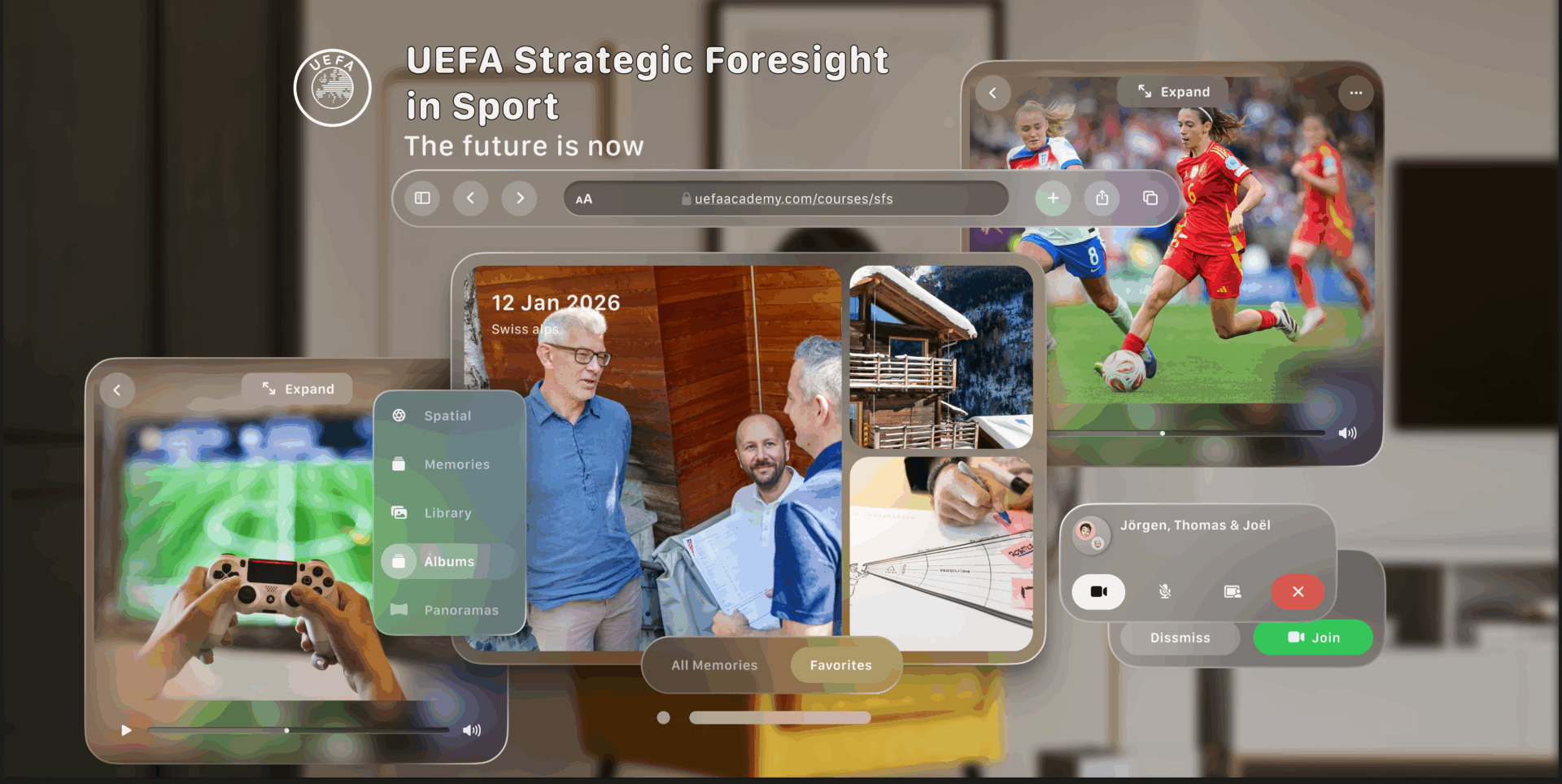Sport is in constant motion. Digital disruption, shifting fan behaviours, new governance demands, and sustainability pressures are reshaping the industry at a rapid pace. For leaders, the challenge is no longer about making occasional big changes, but learning how to adapt continuously while keeping sight of long-term goals.
That reality inspired the UEFA Academy to launch its latest executive education programme: Strategic Foresight in Sport. Unlike many of UEFA Academy’s initiatives, this course is deliberately designed for participants beyond football, opening its doors to professionals from across the sporting landscape.
“Our ultimate goal is that this programme is known beyond football and that we can diversify our audience,” explains Thomas Junod, Head of UEFA Academy. “For this kind of discipline, diversity is a real benefit. Bringing together people with different backgrounds, realities, and perspectives enriches every discussion.”
Junod describes foresight as a vital skill in an era where change is incremental rather than absolute. “Sport is facing profound transformations,” he says. “Change today is not about freezing everything and then moving to a new model. It’s about adapting step by step, while keeping a clear sense of direction, your proverbial North Star.”

Turning worries into opportunities
The programme is not only about predicting trends but about addressing the uncertainties that keep many decision-makers up at night. Financial stability, digital disruption, inclusion, and climate adaptation are just some of the issues weighing on leaders across the sports world.
“What often worries decision-makers is uncertainty itself,” Junod reflects. “This programme creates the opportunity to step back from daily pressures, reflect on long-term trends, and co-create solutions with peers from different parts of the sports ecosystem.”
By framing worries as opportunities for innovation, Strategic Foresight in Sport offers participants the space — and tools — to transform concern into action.
Guided by leading experts
To support this journey, the course will be led by Jörgen van der Sloot, Head of Futures and Founder of Minkowski. Known for his work helping organisations anticipate change and prepare for multiple possible futures, van der Sloot brings deep expertise in scenario planning and strategic reflection.
Building on UEFA Academy’s foundation
The UEFA Academy, established as UEFA’s school of management, has become a recognised leader in executive education in sport, now offering more than 20 programmes. While many focus on football, others, such as Innovation in Action and the Executive Master in Sport Governance (MESGO), were designed from the outset for a wider audience.
“We’ve become an established stakeholder in executive education for professionals in sport,” Junod notes. “While many of our programmes are rooted in football, some, like Strategic Foresight, were conceived with a broader perspective. They are designed to be relevant to sport professionals everywhere.”
A diverse audience
That breadth is reflected in the profile of participants the Academy hopes to attract. “We want as diverse a group as possible,” says Junod. “Decision-makers, people of influence and strategic thinkers coming from different sports, sectors, and roles — clubs, public institutions, commercial partners, or academics. As long as they’re connected to sport and interested in its future, they will bring valuable perspectives to the week away.”
Looking ahead
Applications for the first intake of Strategic Foresight in Sport close on 15 September 2025. Junod says the interest has already been strong. “We’ve already received very good applications and could almost start tomorrow,” he admits. “We won’t take latecomers. The call to action is clear: if you’re interested, apply before 15 September. And if you have questions, don’t hesitate to reach out. We’re happy to answer before you commit. You can reach the Academy at academy@uefa.ch or me directly at Thomas.Junod@uefa.ch .”
For Junod, foresight is about more than simply predicting what comes next. It is about equipping leaders to shape the future of sport itself. “I hope it’s clear that I’m passionate about this topic and convinced of its value,” he says. “Bringing people together to think about what the future might hold, and how to turn worries into opportunities, is something our industry truly needs.”
The programme spiked your interest?
Learn more and apply here, before September 15: UEFA Strategic Foresight in Sport

